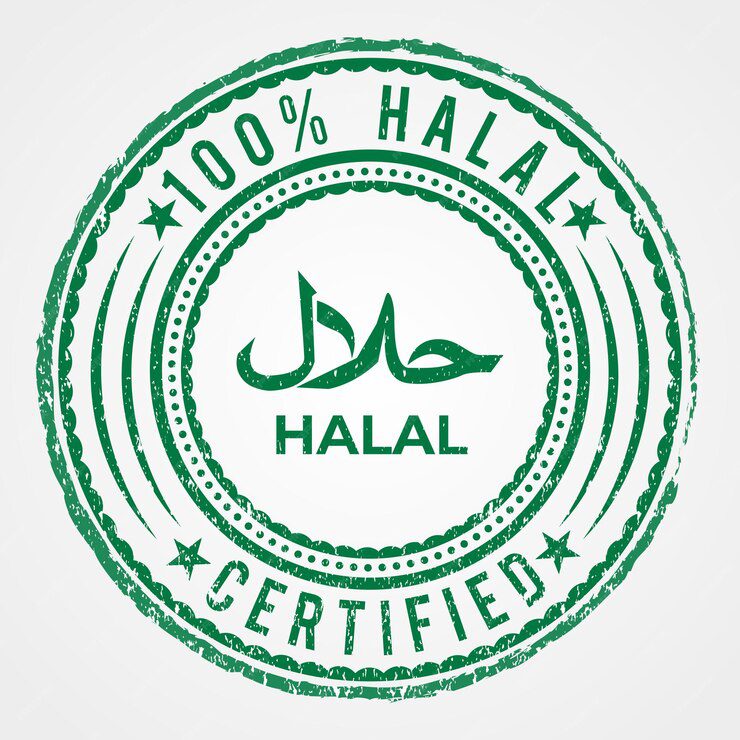1. Introduction
Halal certification is a crucial aspect of the global food and beverage industry, extending beyond to pharmaceuticals, cosmetics, and other consumer goods. It ensures that products comply with Islamic dietary laws, making them permissible for Muslim consumers. With the increasing demand for Halal-certified products worldwide, businesses must understand the certification process and its benefits. In this guide, we will explore what Halal certification entails, its significance, key requirements, and the challenges businesses may face in obtaining it.
2. What is Halal Certification?
Halal certification is an official recognition that a product, service, or facility meets the standards of Islamic law (Shariah). The term “Halal” means “permissible” in Arabic, while its opposite, “Haram,” refers to what is prohibited. Certification ensures that products are free from any forbidden ingredients, such as pork, alcohol, or improperly slaughtered animals. It also verifies that manufacturing processes, handling, and packaging maintain purity and avoid cross-contamination with non-Halal substances.
3. Why is Halal Certification Important?
For Consumers:
- Provides assurance that products meet religious dietary requirements.
- Ensures hygiene, ethical sourcing, and compliance with strict food safety standards.
- Allows consumers to make informed purchasing decisions.
For Businesses:
- Expands market reach to over 1.9 billion Muslims worldwide.
- Builds consumer trust and brand credibility.
- Opens export opportunities in Muslim-majority countries with strict Halal regulations.
- Enhances overall product quality and safety, benefiting all consumers.
4. The Halal Certification Process
Businesses seeking Halal certification must undergo a structured process, which typically includes the following steps:
Step 1: Application Submission: Businesses apply to a recognized Halal certification body, providing details of products, ingredients, and manufacturing processes.
Step 2: Inspection & Audit: A Halal certifying authority inspects the production facility to verify compliance with Halal standards.Evaluates ingredient sourcing, processing, storage, and hygiene practices.
Step 3: Compliance Review: The certification body reviews findings and ensures all requirements are met.Any necessary changes or improvements must be implemented before approval.
Step 4: Certification Approval: If the facility and products meet all standards, the Halal certification is granted.Businesses receive the official Halal logo, which can be used for marketing and packaging.
Step 5: Ongoing Compliance & Renewal: Periodic audits ensure continued adherence to Halal requirements.Certifications must be renewed as per regulatory guidelines.
5. Key Requirements for Halal Certification
To obtain Halal certification, businesses must meet the following criteria:
- Ingredient Compliance: All raw materials must be Halal, free from prohibited substances like pork, alcohol, or non-Halal slaughtered meat.
- Slaughtering Process: For meat products, animals must be slaughtered according to Islamic guidelines, which include invoking God’s name (Bismillah) and ensuring minimal suffering.
- Hygiene & Cross-Contamination Prevention: Facilities must maintain strict cleanliness to avoid contamination with non-Halal items.
- Processing & Packaging Standards: Equipment, storage, and handling must adhere to Halal guidelines to maintain product purity.
6. Recognized Halal Certification Bodies
Halal certification is granted by different organizations worldwide. Some of the most recognized certification bodies include:
- JAKIM (Malaysia) – Department of Islamic Development Malaysia
- MUI (Indonesia) – Indonesian Ulema Council
- GIMDES (Turkey) – Halal Certification and Auditing Research Institute
- HMC (UK) – Halal Monitoring Committee
- IFANCA (USA) – Islamic Food and Nutrition Council of America
- HCAA (Australia) – Halal Certification Authority Australia
It is essential for businesses to choose a reputable certification body that aligns with their target market’s Halal standards.
7. Challenges and Misconceptions About Halal Certification
Despite its benefits, Halal certification comes with challenges and misconceptions:
Common Challenges:
- Complex Documentation: Businesses must provide detailed records of ingredients, suppliers, and manufacturing processes.
- Cost & Time Investment: Certification involves inspection fees, compliance costs, and periodic renewals.
- Varying Global Standards: Different countries have different Halal requirements, making international compliance complex.
Misconceptions:
- “Halal Certification is Only for Muslims” – While Halal is important for Muslims, it also benefits non-Muslim consumers due to high hygiene and quality standards.
- “Halal Certification is Just a Marketing Tactic” – It is a rigorous process ensuring ethical, hygienic, and religious compliance.
- “All Vegetarian or Vegan Foods are Automatically Halal” – Some vegetarian products may contain alcohol-based flavorings or additives that are not Halal.
8. Conclusion
Halal certification is more than just a religious requirement—it is a global standard for quality, hygiene, and ethical production. For consumers, it provides confidence in their dietary choices, while for businesses, it unlocks new markets and enhances brand credibility.
With the increasing demand for Halal-certified products worldwide, obtaining certification is an investment in customer trust and global market expansion. Whether you are a manufacturer, restaurant owner, or retailer, understanding and complying with Halal certification requirements can set you apart in the competitive market.



